Business & Management
EfD-Uganda Holds Inaugural AGM: Celebrates Milestones and Outlines Future Plans
Published
2 years agoon
By
Jane Anyango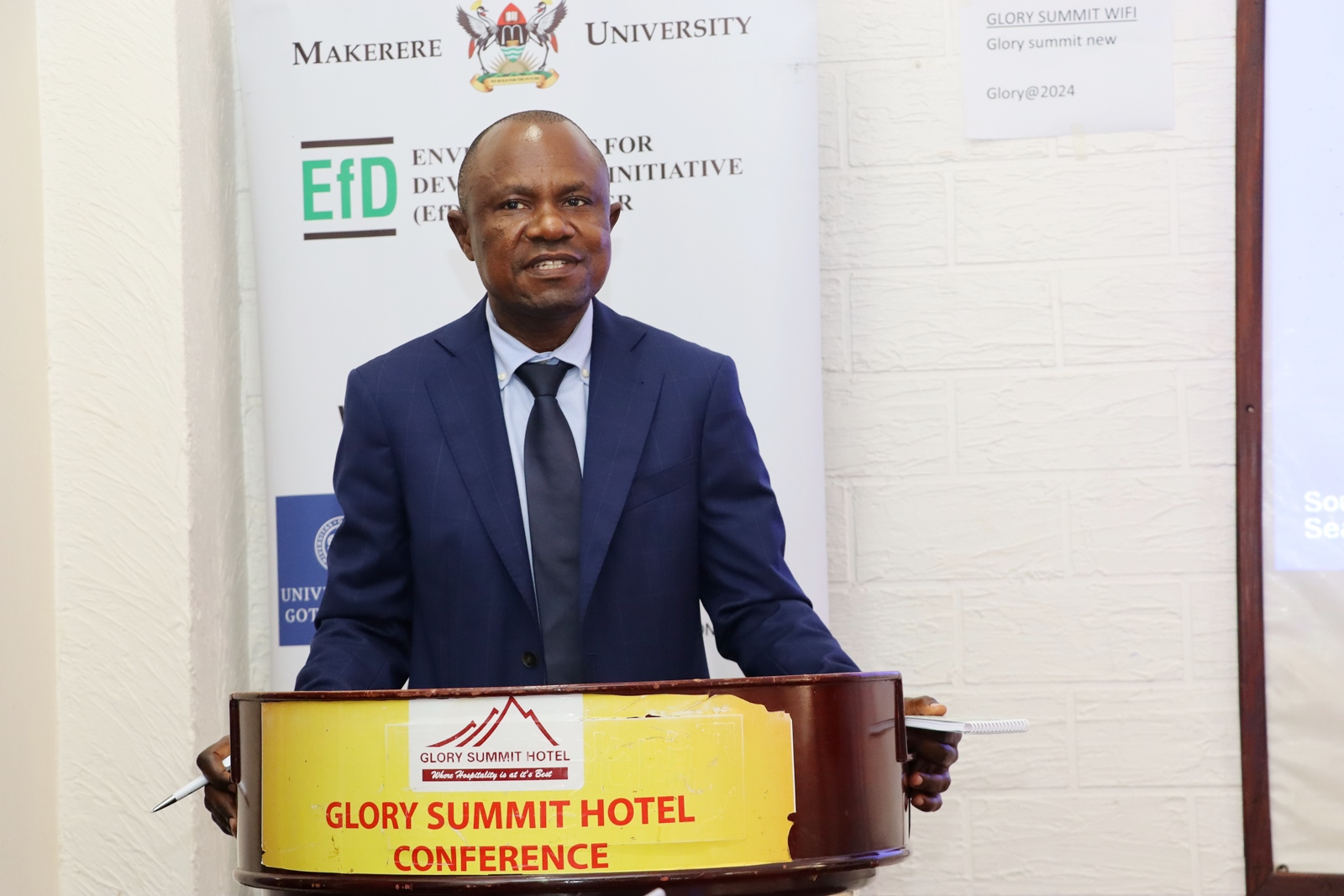
The EfD-Mak Centre Uganda held its first Annual General Meeting since its establishment in Honai Vietnam in 2018 and official launch at Makerere University in October 2019. The meeting aimed to highlight the Centre’s achievements and outline strategic objectives for the next five years. Four key resolutions were generated during the meeting.
The AGM, held on July 18, 2024, at Glory Summit Hotel in Hoima, was officially opened by EfD Mak Board advisory member Assoc. Prof. Eria Hisali. The event was attended by Centre Directors, deans, research fellows, and the Centre’s core team.
In his opening remarks, Hisali praised the EfD Mak Centre for its achievements over the past five years, acknowledging the dedication of its leadership, research fellows, and partners. “It has been five years of very productive work. So congratulations to the leadership and everyone who has been part of this journey,” he stated.
Professor Hisali emphasized the critical nature of environmental issues, particularly for developing countries where livelihoods are deeply intertwined with natural resources. “The efforts that you people are doing are crucial to assure us that we will live to see another day. It is a matter of survival, security, and harmony,” he said.
Highlighting the Centre’s contributions to knowledge creation and policy engagement, he noted, “The EfD Mak Centre has contributed tremendously to the visibility of Makerere University. We appreciate you.” He acknowledged the Centre’s role in research, outreach, and interactions with policymakers as key to its success.
Hisali Calls for Expanded Role and Sustainability Measures for EfD Mak Centre
Looking forward, Professor Hisali called for strategic interventions to ensure the Centre’s sustainability over the next decade. He proposed that the Centre be fully integrated within Makerere University to secure financial stability, suggesting that the university should cover salaries and operational costs. He also advocated for exploring government support and incorporating the Centre into the national budget to ensure continued funding.
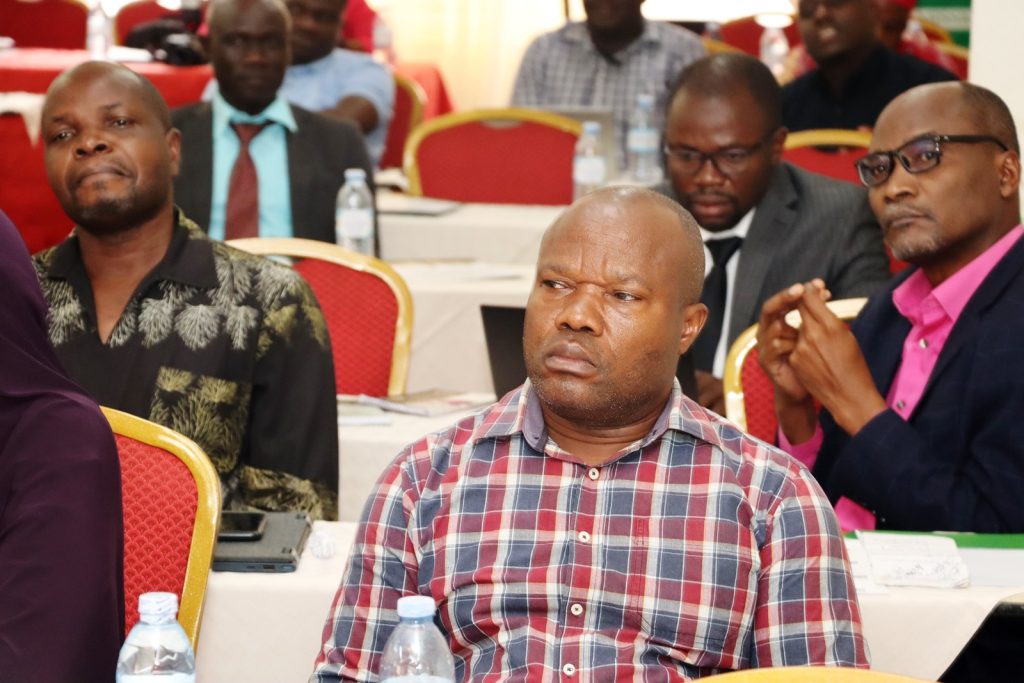
Additionally, he recommended that the Centre enhance its outreach and policy activities, aiming to become a central figure in parliamentary discussions on natural resources and budgeting. “We should be positioning ourselves in such a way that nothing can be discussed in this country regarding matters of the environment without our input,” Professor Hisali asserted.
Professor Hisali also stressed the importance of robust governance structures and urged the Centre to review its board composition for improved responsiveness to policy needs. “The five years have not been for nothing, and we can pick many lessons from there. What gaps do we identify from the governance level?” he questioned.
To further strengthen the Centre’s impact, Hisali encouraged expanding partnerships beyond the EfD network, including collaborations with commercial banks and other stakeholders. He also highlighted the need for ongoing capacity building, suggesting the integration of environmental and climate change issues into university curricula and the development of new degree programs with a focus on the environment. “Capacity building is increasingly important in formal and informal settings to ensure a unified understanding of environmental issues,” he concluded.
In his closing remarks Prof. Hisali appreciated the people and government of Sweden for the support given to this initiative, extending gratitude to the university management, the research fellows, students and Hoima district leadership for input and engagements.
“We have taken note of the emerging issues that require attention and the centre will not allow to fail and that should be out of the picture. Issues raised directly impact on our lives and the country. Any failure means letting down the people who have sacrificed a lot for us to be who we are”, the professor pledged.
Hisali appealed to the centre leadership and research fellows to provide a platform within the seminar series for the process of thought generation on issues of environment and not to wait for research output to go for seminars.
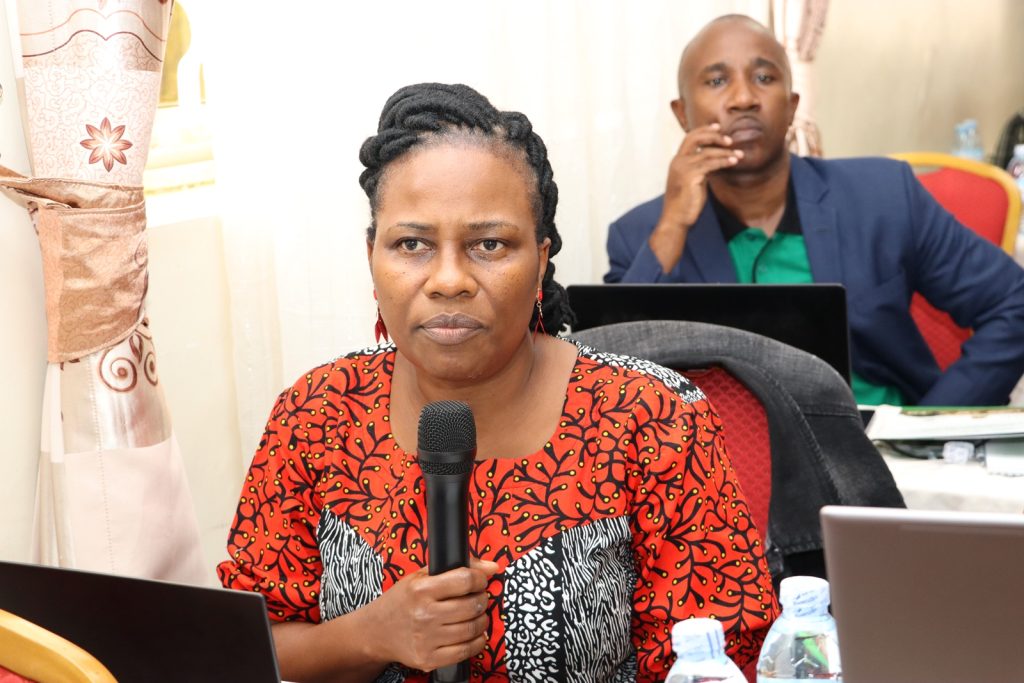
He encouraged research fellows to create time, meet monthly just with notebooks and pens to think , imagine and explain the phenomena as seen not as described in books , models and theories.
“Use EfD as a platform that enable us to conceptualize because then policy makers will take us serious for dealing with reality not as an academic exercise”, Hisali advised.
Dean of School of Economics Applauds EfD Mak Centre’s Success and Collaborative Spirit
In his welcome remarks, Dr. Ibrahim Mike Okumu, Dean of the School of Economics, congratulated the EfD Mak Centre for its successful review, highlighting the centre’s fulfillment of the terms agreed upon with EfD and Sida in Sweden. Dr. Okumu praised the collaborative efforts between the two colleges involved, noting the smooth interaction as a positive indicator of the centre’s effective partnership.
“We have not witnessed any rift in marriage that is typical of many collaborations, and this is a seal of approval for the nature of our collaborative efforts,” Dr. Okumu remarked. He underscored the importance of this seamless cooperation in reflecting the centre’s commitment to its mission and goals.
Reflecting on the impact of the EfD Mak Centre, Dr. Okumu highlighted its potential to influence graduate-level research and seminars within the School of Economics. “As a research cluster, it is poised to affect research output within the school significantly. We anticipate that the centre will start having a visible influence on the nature and characterization of our graduate research,” he said.
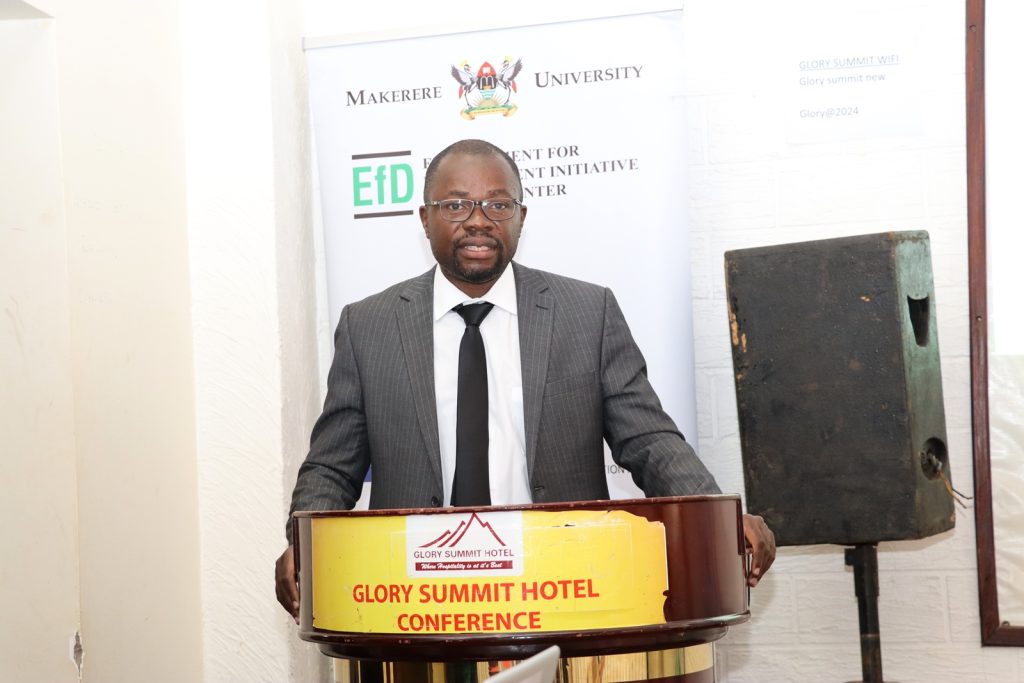
Dr. Okumu also emphasized that the funding from EfD Sweden should be viewed as a foundational support and a testament to the centre’s collaborative success. He encouraged leveraging this partnership to compete for additional grants in climate change, environmental, and natural resource economics, extending beyond the current affiliations.
Looking forward, Dr. Okumu expressed hope that the AGM discussions would foster broader resource flow and establish a sustainable framework for the centre, particularly if Sida’s support were to diminish. He urged participants to engage openly and freely, emphasizing that such openness would enhance the centre’s effectiveness.
“We are all researchers here,” Dr. Okumu concluded, “and the freer we are in our discussions, the better EfD Mak will become.”
Celebrating Achievements and Planning Future Directions (2019 – 2024)
The Deputy Director Prof. Johnny Mugisha highlighted the EfD-Mak Centre’s notable accomplishments and future plans. Representing the Centre’s Director, who was away on EfD-related duties, Prof. Mugisha shared insights into the Centre’s evolution since joining the Environment for Development (EfD) network in 2018.
“The EfD-Mak Centre has made substantial strides in environmental economics research and policy impact,” Prof. Mugisha noted. The Centre, based at Makerere University, operates under the College of Business and Management Sciences (CoBAMS) and the College of Agriculture and Environmental Sciences (CAES). Since its formal inauguration in August 2019, the Centre has focused on advancing transdisciplinary research and policy translation.
Prof. Mugisha detailed the Centre’s institutional development, emphasizing its strategic start with an official join date of November 5, 2018, and its inauguration event in August 2019. The Centre, operating within Makerere University‘s Yusuf Lule Central Teaching Facility, is committed to addressing environmental and developmental challenges through innovative research and community engagement.
The Centre’s organizational structure includes a 9-member Advisory Board, chaired by Associate Professor Umar Kakumba, and a dedicated team of 26 research fellows. This framework supports its research and policy initiatives, guided by a robust management team including the Vice Chancellor and key faculty members.
EfD-Mak Centre’s vision is to lead in research excellence and policy influence in environmental economics. The Centre’s mission includes conducting high-quality research to inform policy and enhancing visibility through strategic collaborations. Prof. Mugisha highlighted the Centre’s strategic plan for 2025-2029, focusing on strengthening research capacity, expanding policy engagement, and fostering collaborations with national and international institutions.
The Centre’s policy engagement has been proactive, involving regular dialogues and hosting the 16th EfD Annual Conference in Kampala in 2022. These efforts facilitate collaboration between researchers, policymakers, and local communities, addressing issues such as natural resource governance and energy transitions.
Prof. Mugisha also outlined the Centre’s collaborative partnerships, which span national and international institutions. Key collaborations include government bodies, local governments, and international organizations such as the University of Gothenburg and Duke University. Funding from the Swedish International Development Cooperation Agency (Sida) and the International Development Research Centre (IDRC) has supported the Centre’s research and policy initiatives.
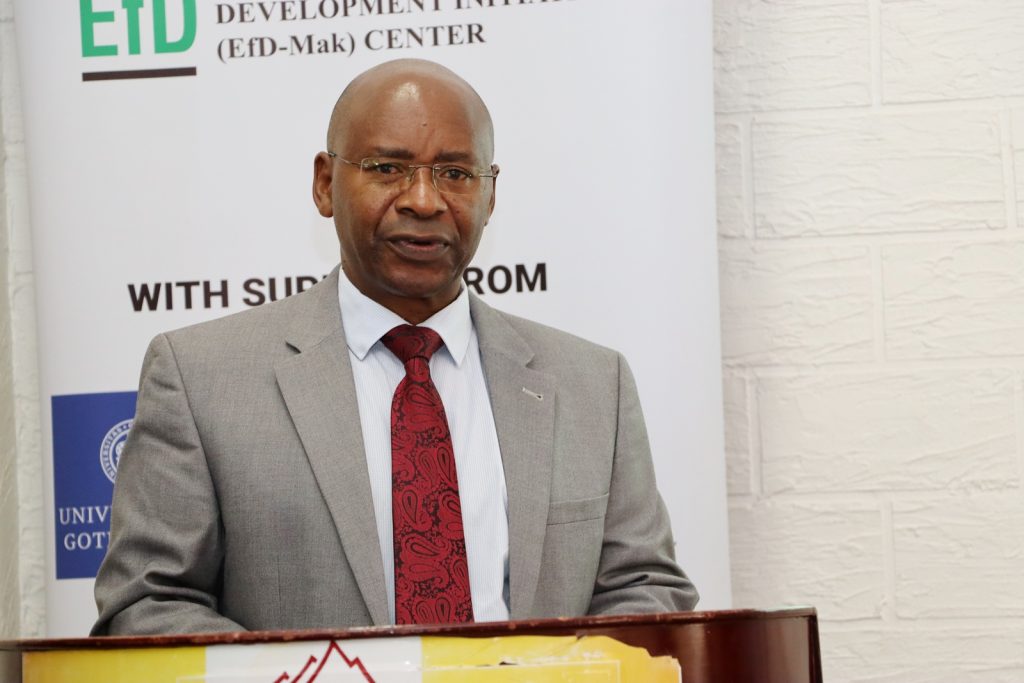
Over the past five years, EfD-Mak Centre has conducted significant research on sustainable agriculture, energy transitions, water management, and climate change. The Centre has published over 142 papers in peer-reviewed journals and secured 11 competitive research grants. Notable projects include studies on renewable energy, climate resilience, and gender dynamics in environmental economics.
Looking ahead, EfD-Mak Centre’s strategic direction includes strengthening institutional capacity, expanding policy engagement, and enhancing collaborations. The Centre will focus on themes such as energy transition, climate change adaptation, and water resources management.
Prof. Mugisha concluded by expressing gratitude to all supporters and partners, emphasizing the Centre’s commitment to advancing research and policy for sustainable development. “Together, we will continue to make meaningful strides towards a healthier, more sustainable planet,” he said
Resolutions of the AGM
The meeting resolved to appreciate the center leadership for the last five years and governance structure, the university and other stakeholders for the support given to the center.
Second, the meeting agreed to formalize the AGM as an integral part of the structure of the EfD Mak centre and also from the, name of AGM annually. Since the meeting will be held annually, the centre should provide updates on progress made and address the resolutions of the previous AGM.
The meeting further resolved to confirm the results for election of the Director and Deputy Director of the EfD Mak centre. And, four to review and expand the pertinent aspects of the strategic outlook of the EfD Mak centre and, all given suggestions, remarks, reports be taken care of, taking in all issues that emerged from the deliberations.
Jane Anyango is the Communication Officer EfD Uganda
You may like
-
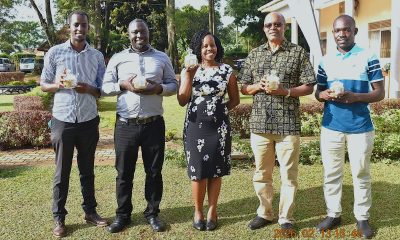

Makerere University Researchers Release New Soybean Variety, MakSoy 7N
-


Strengthening Global Partnerships to Advance Research, Innovation, and Graduate Training: Makerere University Hosts Delegation from the University of Warwick
-


Uganda has until 2030 to end Open Defecation as Ntaro’s PhD Examines Kabale’s Progress
-
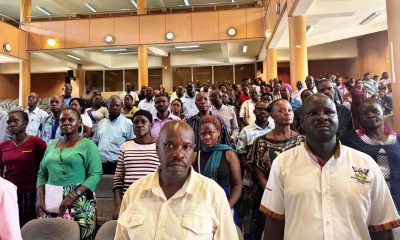

Support Staff Trained to Promote Safety of Students and Stakeholders
-
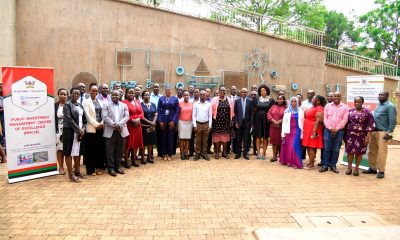

Makerere Hosts Second Cohort of MoKCC&MA Procurement Officers for E&S Safeguards Training
-
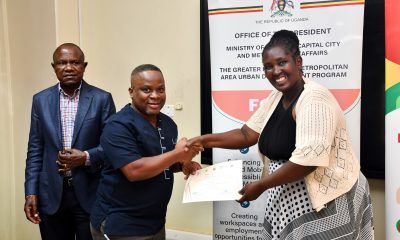

PIM Centre Awards Certificates to MoKCC&MA Officers after Safeguards Training
Business & Management
Makerere Hosts Second Cohort of MoKCC&MA Procurement Officers for E&S Safeguards Training
Published
2 days agoon
February 18, 2026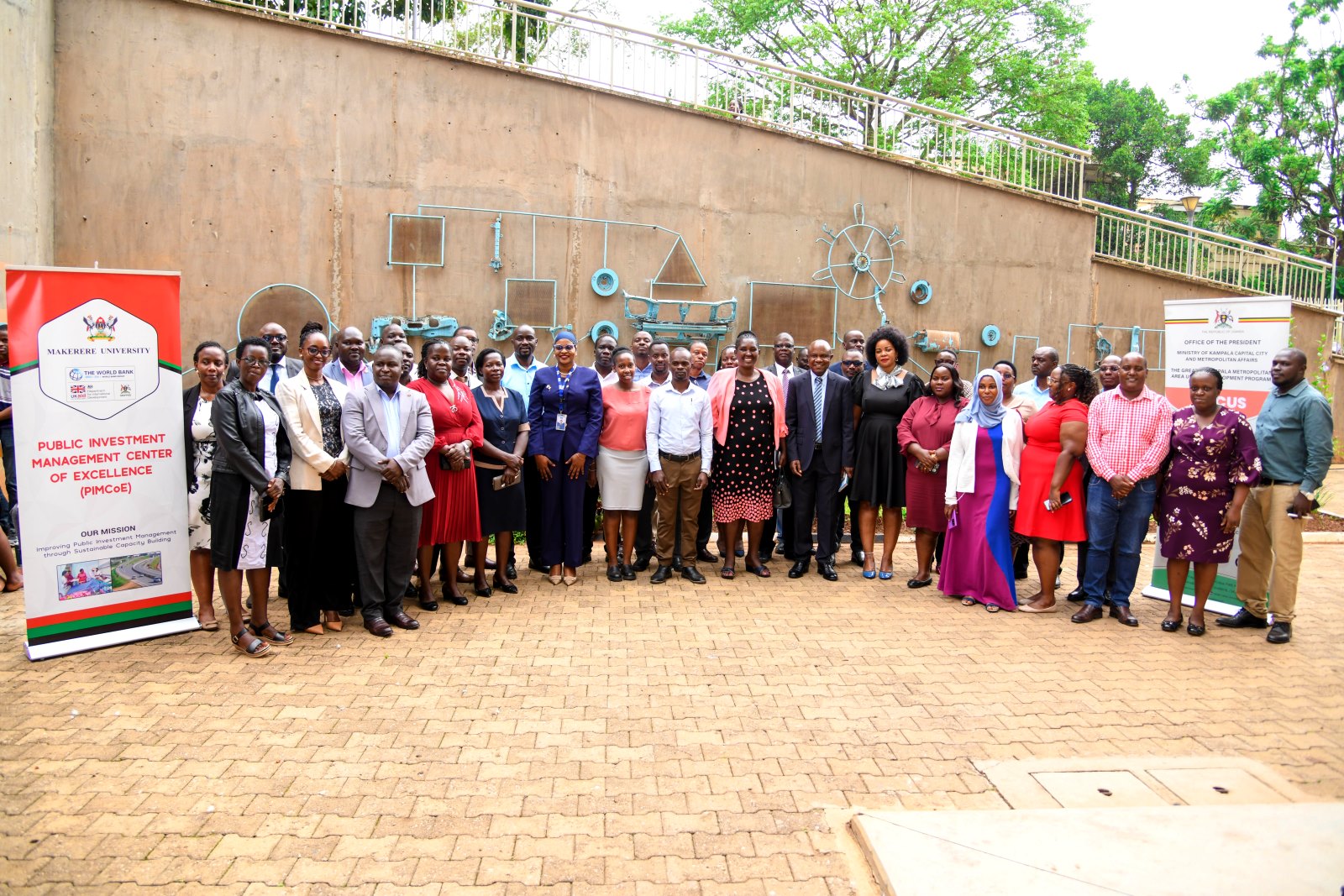
The second cohort of procurement and project officers from the Ministry of Kampala Capital City and Metropolitan Affairs (MoKCC&MA) has commenced a four-day training in Integrating Environmental and Social (E&S) Safeguards in the Procurement Cycle at Makerere University.
The training, which started on 17th February, is being conducted by the Public Investment Management (PIM) Centre of Excellence and brings together officers from Kampala Capital City Authority (KCCA), Entebbe Municipality, Kira Municipality, Mpigi District Local Government, and Wakiso District Local Government.
The programme was officially opened by the Under Secretary of MoKCC&MA, Ms. Monica Edemachu Ejua.
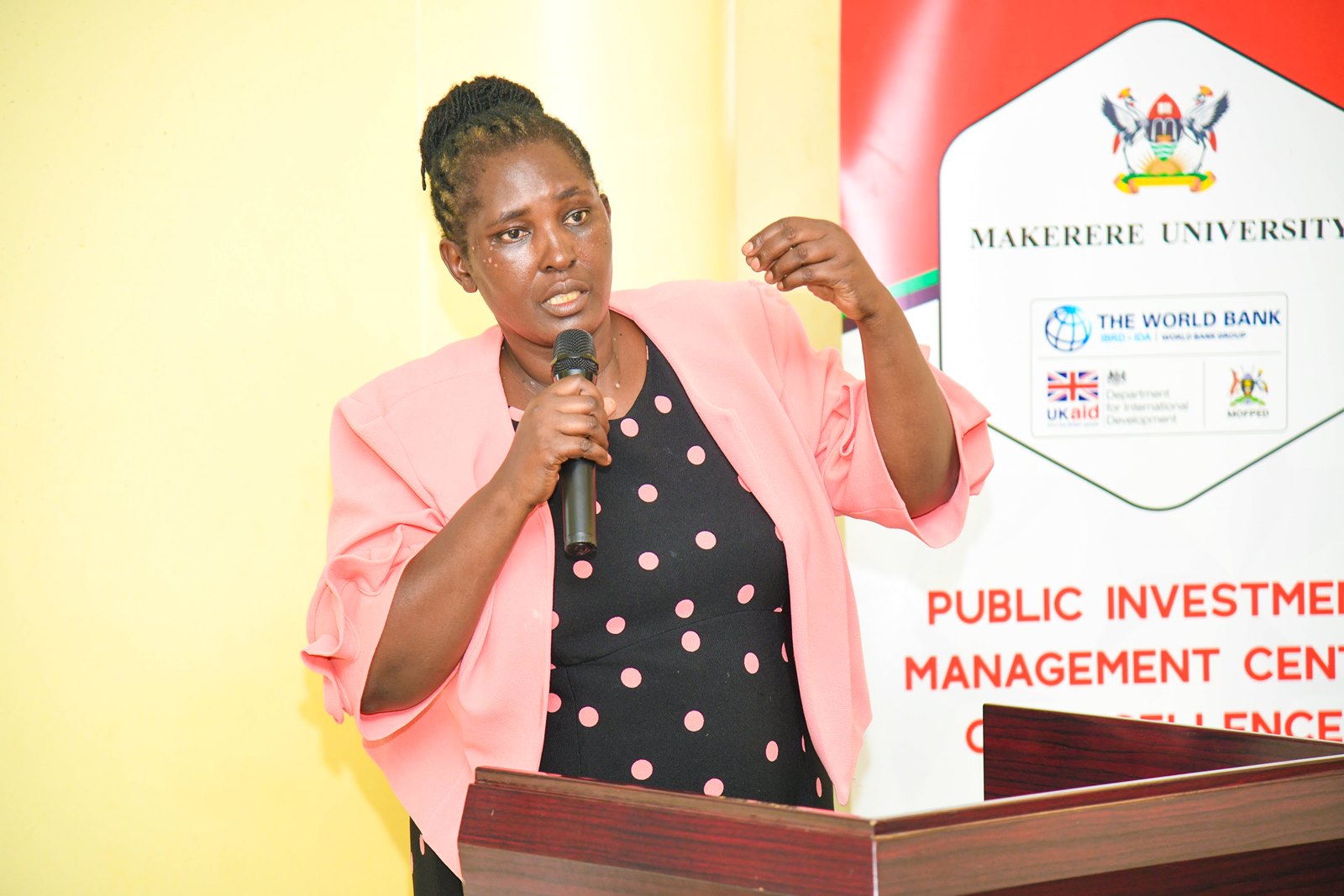
In her opening remarks, Ms. Ejua thanked Makerere University for strengthening the Ministry’s capacity and bringing on board facilitators with hands-on experience. She emphasized that the training is critical for effective implementation of the Greater Kampala Metropolitan Area Urban Development Programme (GKMA-UDP), which operates under a results-based financing framework.
Drawing from personal experience, she underscored the importance of mainstreaming environmental and social safeguards into government operations and even into school curricula. Using practical examples, from poor waste management practices to unsafe project sites—she highlighted the real-life consequences of weak compliance, including fatalities, environmental degradation, and social injustices.
She cited recent incidents within the GKMA programme, noting that failure to manage environmental and social risks can lead to suspension of project sites and reputational damage.
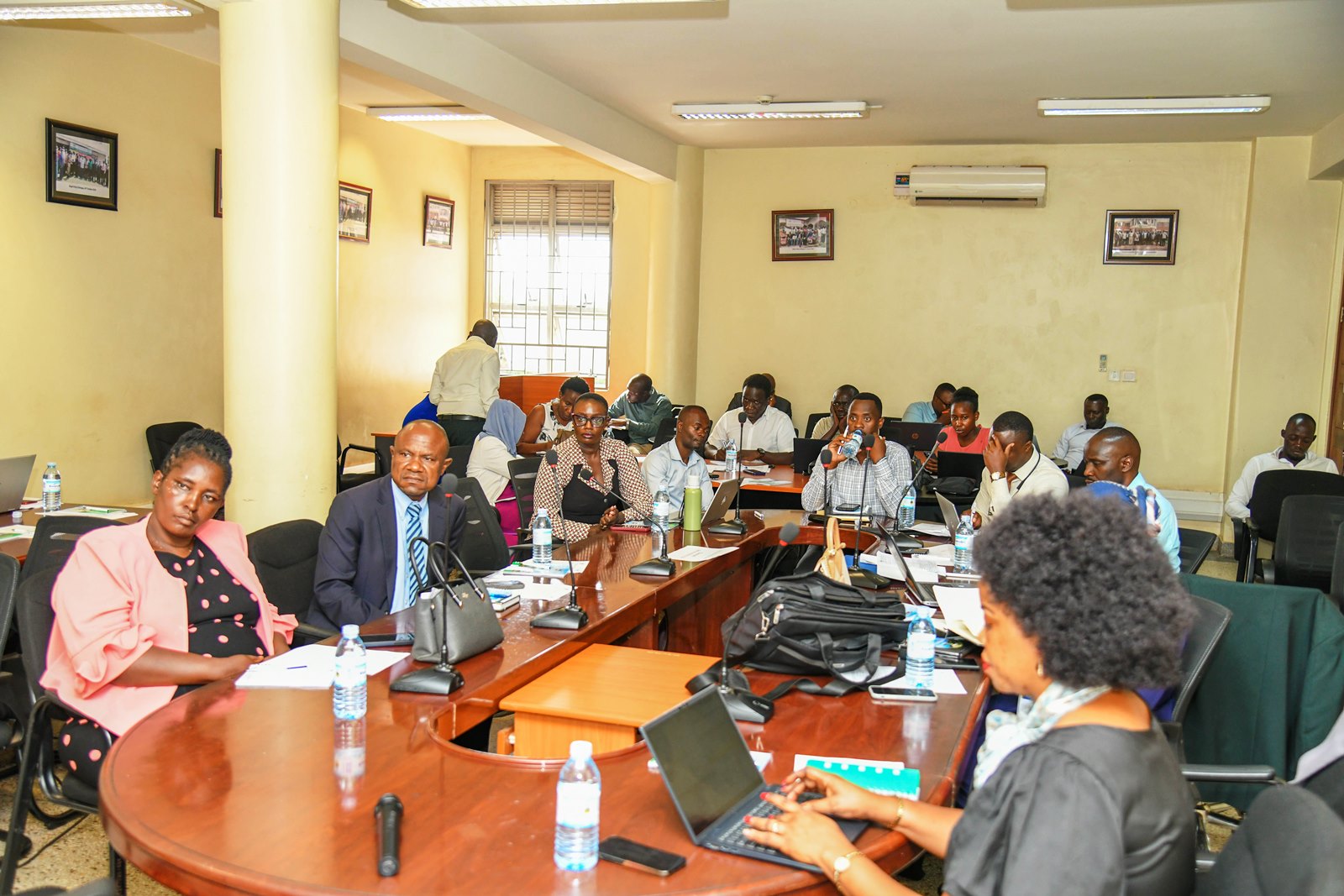
“We would rather prevent than deal with the death of somebody. Contractors know how expensive it is to deal with fatalities,” she stressed.
Ms. Ejua further challenged procurement professionals to recognize their central role in government performance.
“Procurement is the engine of government business. If it is not well managed from planning, the end result will be bad. But if we plan well, we shall end well,” she said.
She called for greater engagement with communities during project implementation and urged officers to become ambassadors of sustainable development beyond the classroom.
Strengthening the Public Investment Cycle
Welcoming participants, the Deputy Director of the PIM Centre of Excellence, Prof. Eria Hisali, emphasized that integrating environmental, social, health and safety considerations is as important as assessing financial and economic feasibility.
He noted that since 2009/2010, the Government of Uganda has allocated a significant share of its national budget—averaging 40–45 percent—towards capital development projects. Such large-scale investments, he said, demand robust systems to ensure value for money and sustainability across the entire public investment management cycle.
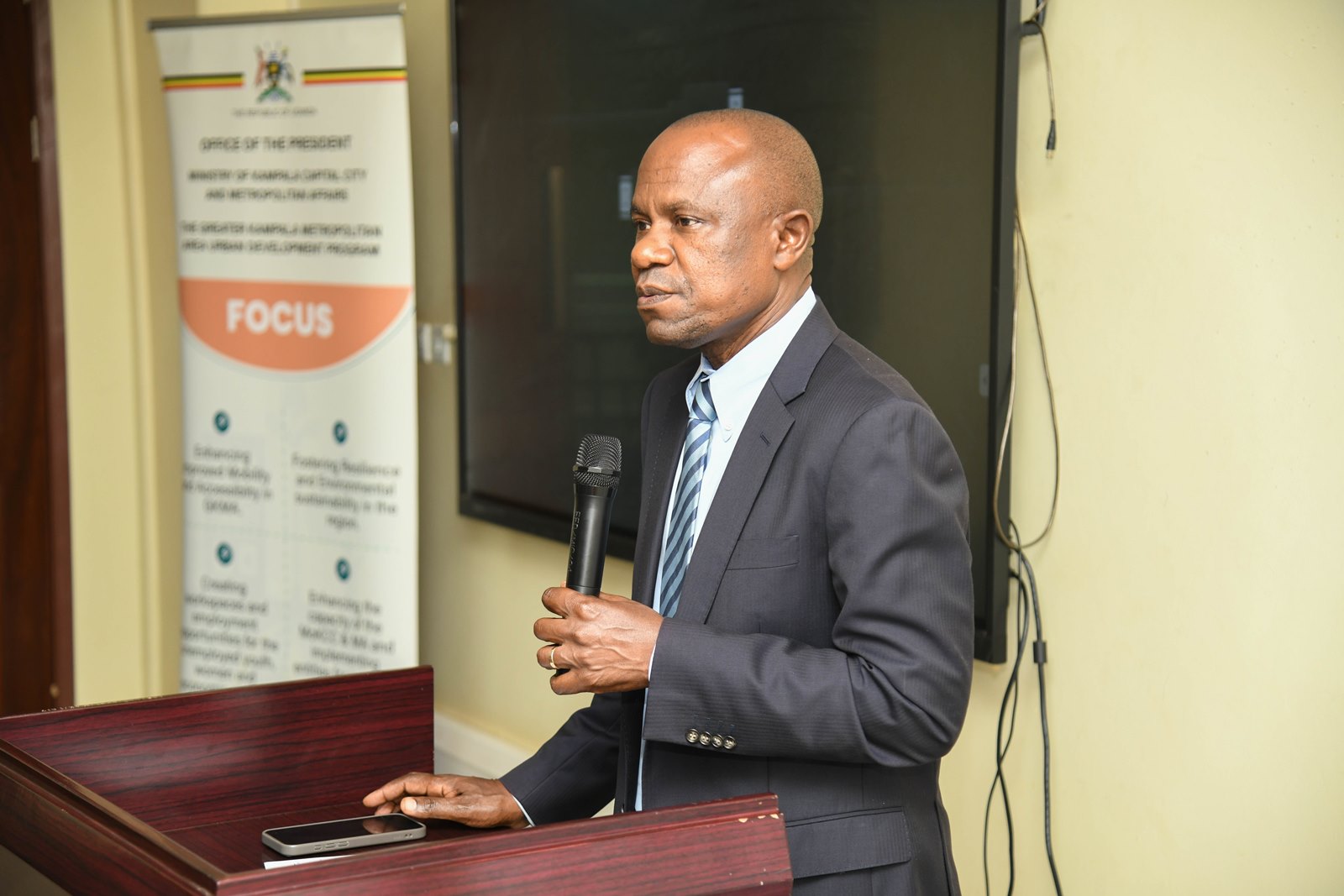
“Public investment management is not only about feasibility studies. It includes ideation, procurement, monitoring and evaluation, and sustainability considerations,” Prof. Hisali explained.
He encouraged participants to quantify the costs of non-compliance, including the economic implications of fatalities and environmental damage, arguing that evidence-based decision-making strengthens accountability and action.
World Bank Support and System Strengthening
Representing, the funding agency, Ms Maliam Acio Aalangdong, a Social Development Specialist from the World Bank, commitment to strengthening country systems for environmental and social risk management.
She revealed that Uganda’s World Bank portfolio currently stands at approximately USD 4.9 billion, making effective safeguards management a priority. She explained that projects are now governed under the Environmental and Social Framework (ESF), which places strong emphasis on integrating risk mitigation measures from project design through implementation.
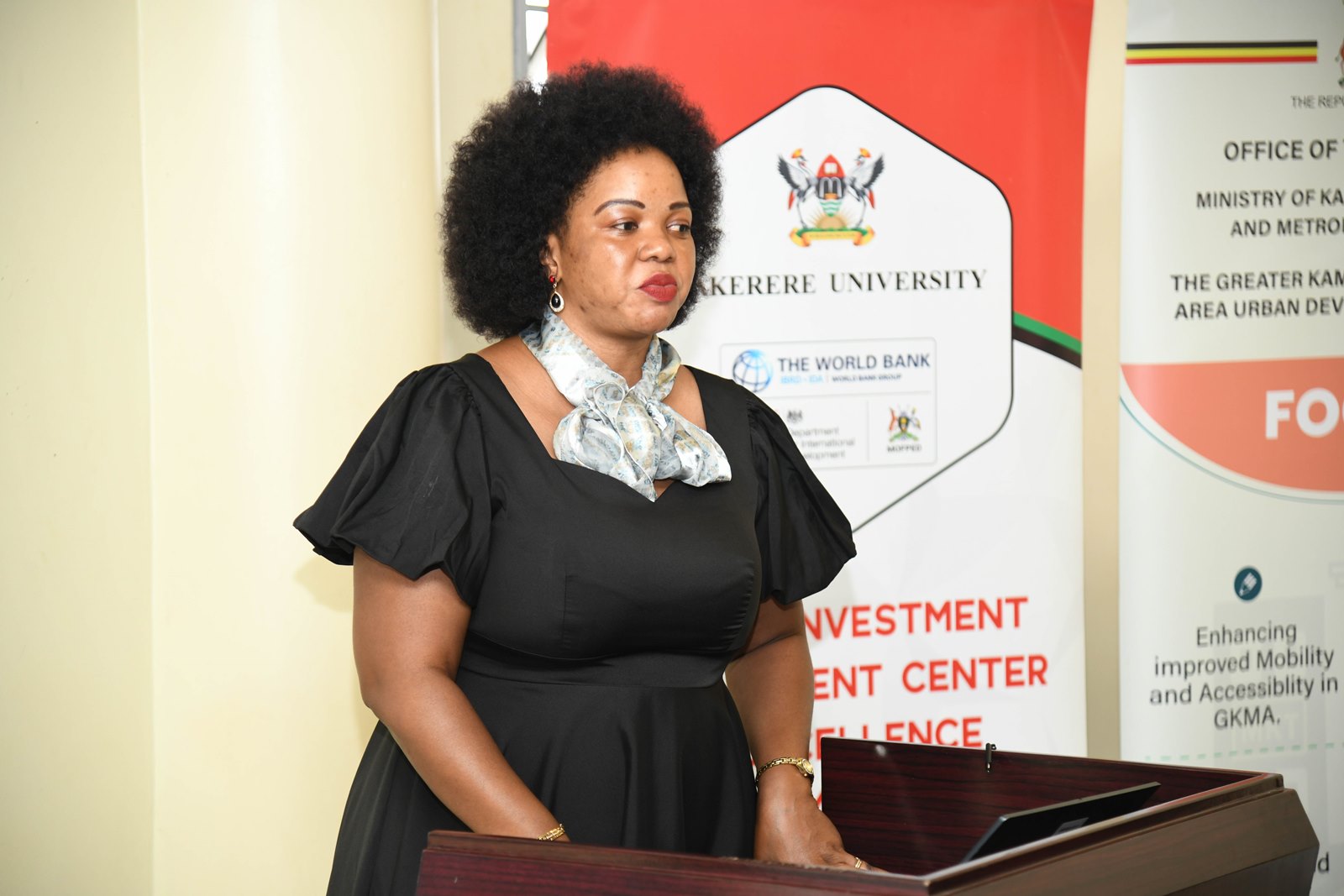
Ms. Acio noted that previous assessments identified gaps in upstream mainstreaming of E&S issues, stakeholder engagement, land acquisition management, and social risk coverage. The partnership with Makerere University and other institutions aims to address these gaps through structured training and professional development.
She also highlighted that fatalities recorded under some projects in Uganda—including six in a single year under GKMA—underscore the urgency of building stronger compliance and monitoring systems.
Training Objectives
Presenting the objectives of the training, Dr. Bruce Rukundo from MoKCC&MA explained that the programme focuses on strengthening participants’ ability to systematically integrate environmental, social, health and safety (ESHS) considerations into all stages of the procurement cycle.
Participants will be equipped to:
- Identify and map E&S risks during project planning and procurement;
- Draft and review bidding documents that reflect E&S obligations, including occupational safety, labour management, and gender-based violence safeguards;
- Apply objective criteria in bid evaluation to ensure compliance;
- Monitor contractor performance using inspections, checklists, and reporting tools;
- Take timely corrective action during project implementation.
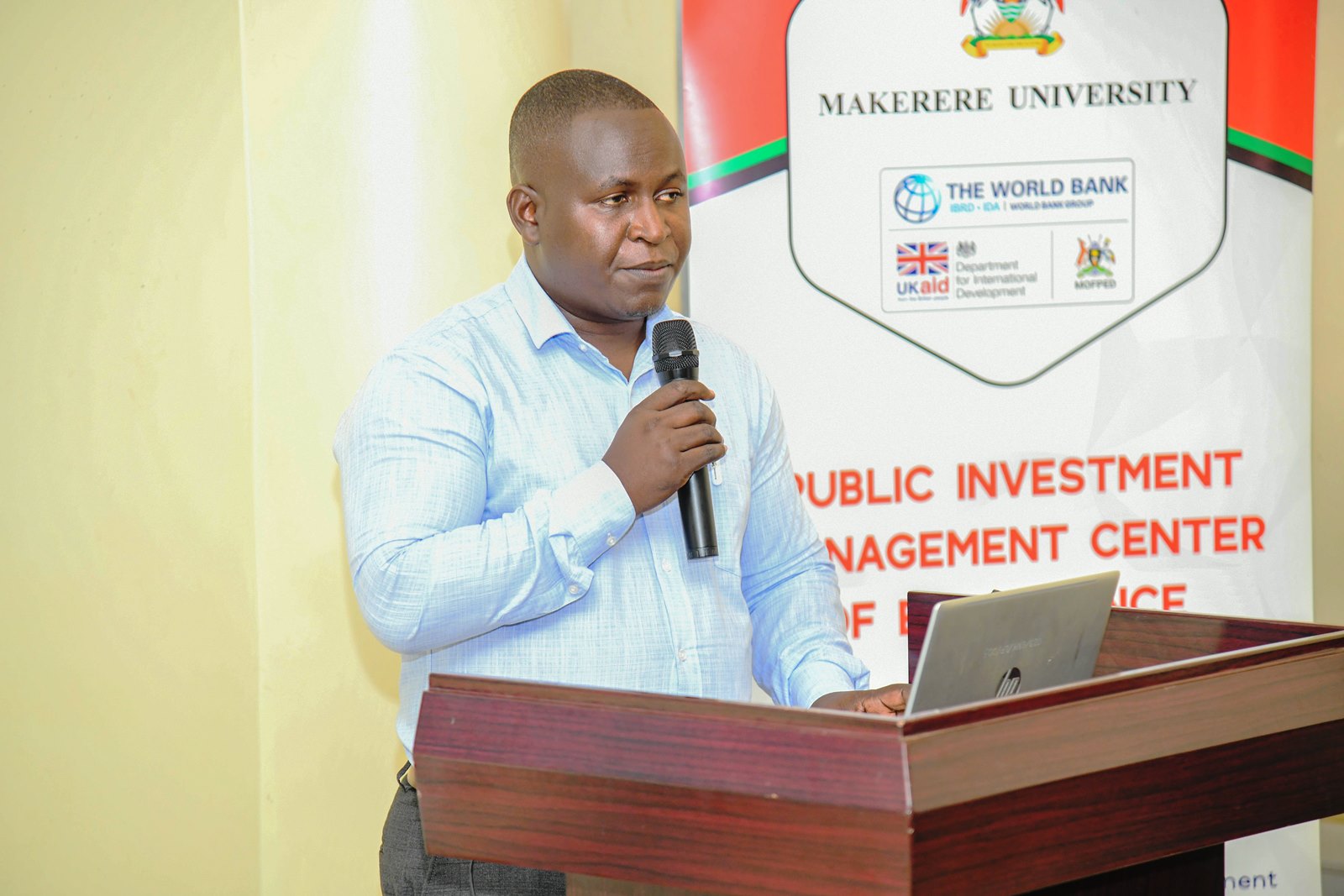
Dr. Rukundo emphasized that while contractors are responsible for compliance on site, the borrower remains ultimately accountable for managing environmental and social risks.
Expanding the Impact
Dr. Jude Mugarura, Lead Trainer, noted that the first cohort completed its training successfully the previous week. The second cohort expands participation to additional metropolitan entities, with an expected total of about 40 participants.
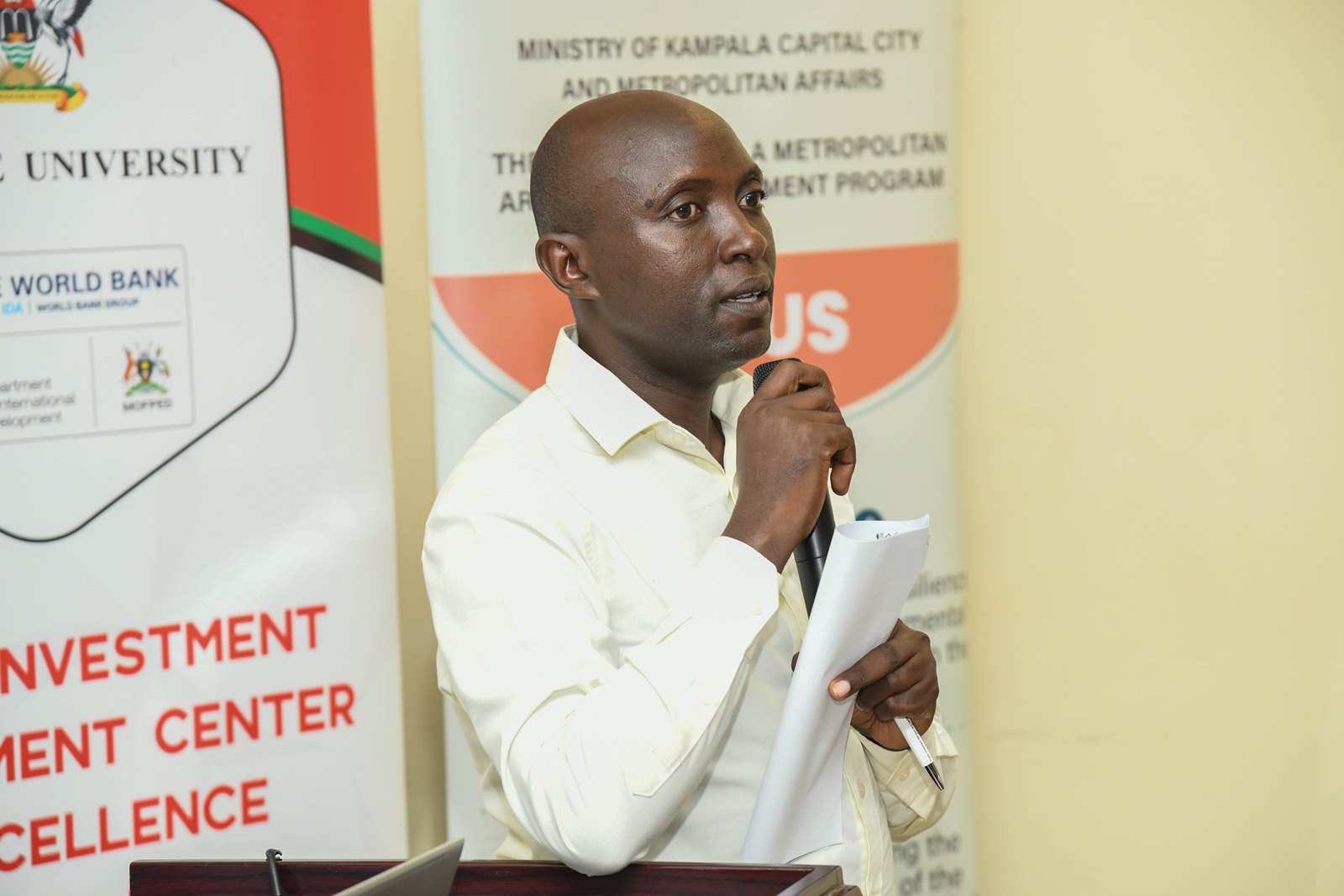
He reiterated that the training is part of a broader strategy to institutionalize environmental and social safeguards within Uganda’s public investment management systems. As the second cohort embarks on the four-day programme, participants have been urged to not only earn certificates but to translate knowledge into action, ensuring safer, more sustainable infrastructure development across the Greater Kampala Metropolitan Area and beyond.
Business & Management
PIM Centre Awards Certificates to MoKCC&MA Officers after Safeguards Training
Published
6 days agoon
February 13, 2026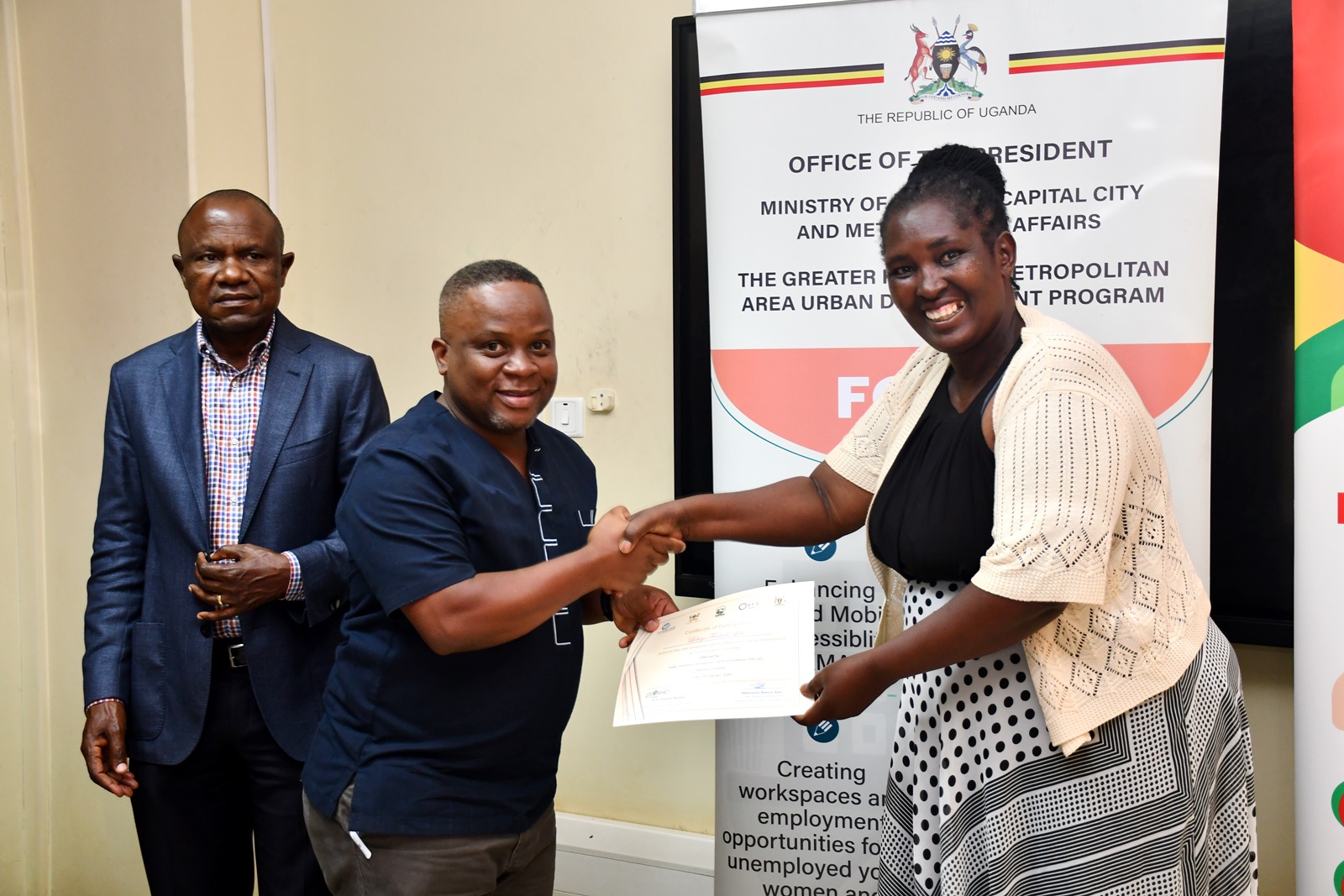
The Makerere University Public Investment Management (PIM) Centre of Excellence has awarded certificates to over 30 officers from the Ministry of Kampala Capital City and Metropolitan Affairs (MoKCC&MA) following the successful completion of a four-day training on Managing Environmental and Social Safeguards in the Procurement Cycle.
The certificate award ceremony, held on February 13, 2026 was presided over by the Under Secretary of MoKCC&MA, Ms. Monica Edemachu Ejua, and attended by university leaders, facilitators, and development partners.
Building Sustainable Procurement Systems
Delivering remarks on behalf of the Principal of the College of Business and Management Sciences (CoBAMS), Prof. Eria Hisali congratulated the participants for pioneering the programme and reaffirmed the PIM Centre’s commitment to strengthening public investment management across the entire project cycle.
Prof. Hisali traced the origins of the PIM Centre to the 2020/2021 financial year, when it was established with initial support from the British Government under a World Bank trust fund. He explained that the Centre was created to equip public sector officials with skills to assess the financial and economic viability of public investment projects.
“We started by focusing on whether projects make financial and economic sense. But public investment management goes beyond feasibility. It includes procurement, monitoring and evaluation, and sustainability considerations,” he noted.
He emphasized that procurement professionals serve as critical gatekeepers in ensuring value for money in public projects. However, he added that modern procurement must go beyond cost considerations to integrate environmental and social sustainability.
“This training marks an important step in mainstreaming sustainability issues into procurement processes,” Prof. Hisali said.
First Cohort of a World Bank-Initiated Programme
Dr. Jude Mugarura, the Lead Trainer, highlighted that development of the training module began three years ago at the initiative of the World Bank. The programme brought together experts from multiple institutions and disciplines, including three colleges at Makerere University—CoBAMS, the College of Agricultural and Environmental Sciences, and the College of Humanities and Social Sciences—working under the PIM Centre of Excellence.
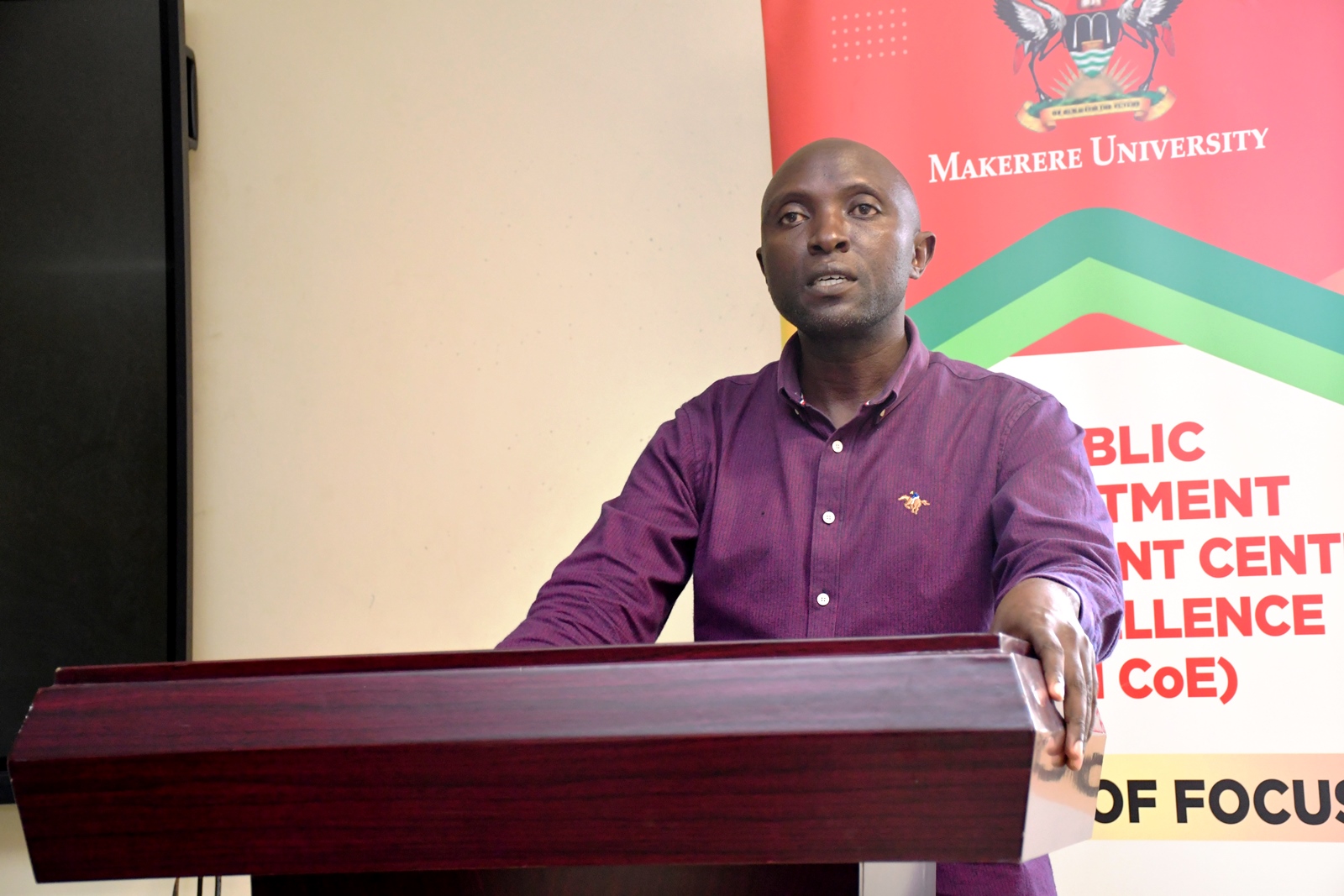
Facilitators also included experts from the Public Procurement and Disposal of Public Assets Authority (PPDA), corporate practitioners, and specialists from the World Bank.
Dr. Mugarura noted that the MoKCC&MA officers formed the first cohort to receive the training, positioning them at the forefront of integrating environmental and social safeguards into procurement practices.
“We appreciate the World Bank for coordinating the development of these materials and supporting the training. We are proud that you are the first group to benefit from this internationally benchmarked programme,” he said.
Call for Practical, Impact-Oriented Training
In her closing remarks, Under Secretary Monica Edemachu Ejua thanked Makerere University and the facilitators for dedicating time and expertise to build the capacity of ministry staff.
She described the training as timely and strategic, noting that it lays a strong foundation for implementation of the Greater Kampala Metropolitan Area Urban Development Programme, as well as other government initiatives.
“This training is not just about one programme. It sets the foundation for sustainability in government projects,” she said.
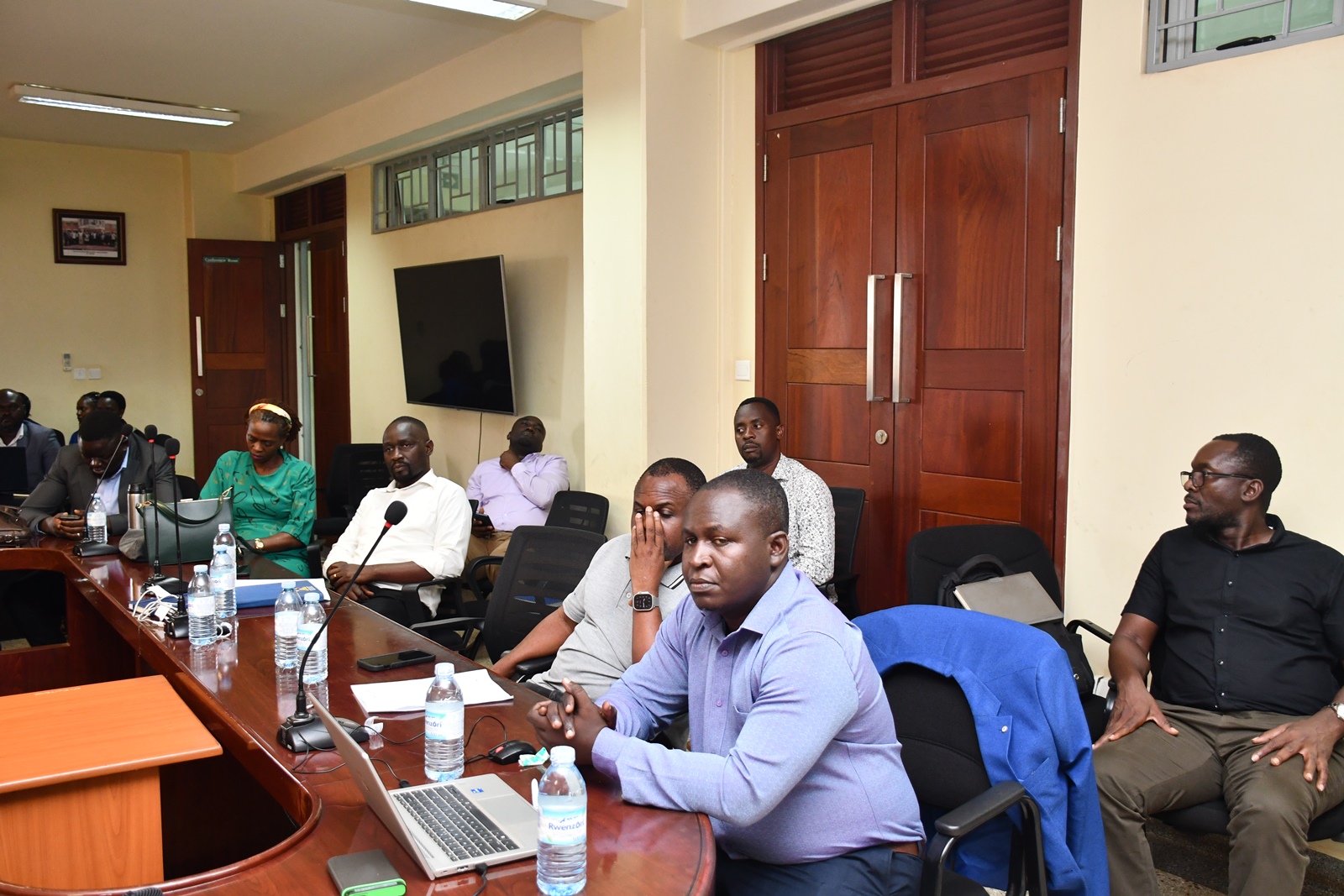
The Under Secretary challenged universities to strengthen practical components in their curricula to better prepare graduates for the demands of public service. She underscored the importance of collaboration between academia and government in addressing national challenges such as waste management, environmental protection, and sustainable urban development.
“Developed countries have worked closely with academia to solve their problems. As government, we must continue partnering with institutions like Makerere to find practical solutions to our challenges,” she emphasized.
She further reminded participants of their responsibility as public officers to promote patriotism, accountability, and sustainability in service delivery.
Expanding the PIM Offering
The training forms part of the PIM Centre’s broader strategy to expand its offerings beyond project appraisal to cover the entire public investment management cycle. Going forward, the Centre plans to deliver modular programmes covering procurement, monitoring and evaluation, project conceptualization, and sustainability integration. The ceremony concluded with the award of certificates to participants and facilitators, marking another milestone in Makerere University’s contribution to strengthening public sector capacity and promoting sustainable public investment in Uganda.
Business & Management
VC Opens Training for MoKCC Officials on Safeguards in Procurement
Published
1 week agoon
February 10, 2026
The Vice Chancellor of Makerere University, Prof. Barnabas Nawangwe, has officially opened a one-week training for Ministry of Kampala Capital City and Metropolitan Affairs (MoKCC&MA) officials on Integrating and Managing Environmental, Social, Health and Safety (ESHS) Safeguards in Procurement.
The training, conducted by the Public Investment Management (PIM) Centre of Excellence, is funded by the World Bank and brings together officials from KCCA, metropolitan and municipal authorities under the Greater Kampala Metropolitan Area (GKMA) programme, alongside officials from central government ministries and agencies.
Opening the training, Prof. Nawangwe emphasized that safeguarding is a critical pillar of sustainable development and accountable public service delivery.
“If we get things wrong in Kampala, we affect the entire country. Everything done in this city must be well planned, socially responsible, and environmentally sound,” Prof. Nawangwe said.
Drawing from his professional background as an architect, the Vice Chancellor underscored the importance of environmental, social, and safety safeguards, noting that failure to address these issues at planning and procurement stages can lead to loss of life, stalled projects, and massive financial waste. He cited international examples where projects were halted or countries faced global pressure due to neglect of environmental and social considerations.

Prof. Nawangwe commended the World Bank for its continued partnership with Makerere University, particularly in supporting the establishment and growth of the PIM Centre of Excellence, which he described as one of the University’s flagship initiatives with visible national impact.
“I see the work of the PIM Centre in government processes, in reports, and even in Development Committee meetings. That is real impact,” he noted, adding that strengthening in-country capacity through Makerere reduces reliance on costly external consultants.
He reaffirmed Makerere University’s commitment to supporting government through research, training, and policy-relevant knowledge, stressing that continuous professional development is essential in a rapidly changing world.
The Under Secretary, Ministry of Kampala Capital City and Metropolitan Affairs, Ms. Monica Edemachu Ejua, welcomed the training, describing it as timely and necessary given the challenges faced during project implementation, particularly in road construction.
Ms. Ejua, revealed that the training was informed by real and painful experiences, including fatal accidents on construction sites, some of which could have been avoided with stronger environmental and social safeguards.
“Environmental, social, and health and safety issues must never be downplayed. These considerations must begin at procurement planning, not at implementation,” she said.
She highlighted that procurement officers, engineers, planners, accountants, and administrators must all understand safeguards, noting that infrastructure development is inherently multidisciplinary.
“Development must be a blessing to communities—not a burden,” she added.
Ms. Ejua praised Makerere University for hosting the training and the World Bank for supporting government efforts to build institutional capacity, adding that learning does not end at graduation.
World Bank: Strong Country Systems Are Key to Development Impact
Presenting on behalf of the World Bank, Ms. Christine Kasedde, a Senior Environmental Specialist, explained that the training is part of a broader effort to strengthen country systems for managing environmental and social risks in development projects.
She noted that while the World Bank has committed over USD 4 billion to projects in Uganda, weak safeguards and capacity constraints have affected implementation and disbursement.

“Environmental and social safeguards are legally binding commitments. When they are not addressed properly, issues escalate to the highest levels of government,” Ms. Kasedde explained.
She outlined how the collaboration with Makerere University has led to the development of several short professional courses across CoBAMS, the College of Agricultural and Environmental Sciences (CAES), and the College of Humanities and Social Sciences (CHUSS). These courses address gaps in social risk management, environmental sustainability, health and safety, climate risk, and procurement.
Ms. Kasedde also revealed that the partnership has culminated in the establishment of an Environmental and Social Sustainability Centre at Makerere University, which will serve as a hub for training, research, advisory services, and independent assessments.
Procurement as a Tool for Sustainable Development
Representing the Public Procurement and Disposal of Public Assets Authority (PPDA), Ms. Mercy Kyoshabire, Director for Procurement and Disposal Capacity Building, emphasized that public procurement accounts for over 60 percent of government expenditure and must therefore be leveraged as a tool for sustainable development.
She reminded participants that environmental, health, and social safeguards have been embedded in standard bidding documents since 2019, urging procurement professionals to integrate sustainability throughout the procurement cycle.
“Sustainability is about the three Ps—People, Profit, and Planet. Procurement decisions made today should not compromise future generations,” she said.
Ms. Kyoshabire reaffirmed PPDA’s commitment to collaboration and capacity building, particularly with centres of excellence such as Makerere University.
A Model of Interdisciplinary Collaboration
The training also drew strong support from the Principal of CAES, represented by Dr. Patrick Byakagaba and, Principal CHUSS, Prof. Helen Nkabala, who emphasized Makerere University’s shift away from siloed approaches toward interdisciplinary collaboration in addressing national development challenges.

Prof. Edward Bbaale, Principal Investigator of the PIM Centre of Excellence, noted that the training responds to critical gaps identified at the pre-investment and procurement stages of public projects, particularly as Uganda pursues an ambitious growth agenda amid climate and social risks. Dr. John Sseruyange, the manager of PIM Centre of Excellence said, the week-long training is expected to strengthen the capacity of KCCA and GKMA implementing entities to integrate and manage environmental, social, health, and safety safeguards across the procurement and project implementation cycle, ultimately improving service delivery and protecting communities.
Trending
-

 Agriculture & Environment2 weeks ago
Agriculture & Environment2 weeks agoFrom Adversity to Excellence: The Inspiring Journey of Makerere’s Best Science Student, Esther Ziribaggwa
-

 General1 week ago
General1 week agoAptitude Exam (Paper 1) Results for the Mature Age Entry Scheme 2026/2027
-

 Health2 weeks ago
Health2 weeks agoDr. Samalie Namukose and the Quiet Work of Making Nutrition Count
-

 Research2 weeks ago
Research2 weeks agoCall for PhD Student Fellowships under H-DATA
-

 Health2 weeks ago
Health2 weeks agoHow Jimmy Osuret Turned Childhood Trauma into Evidence for Safer School Crossings
